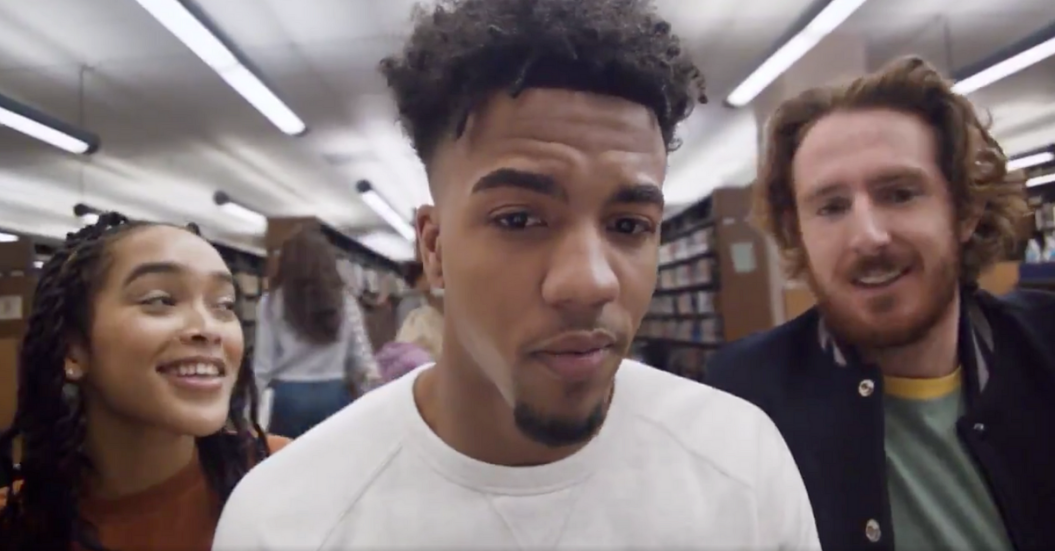The NCAA Tournament dominates the sports world and makes millions of dollars for advertisers, television networks, local businesses, and, most importantly, the NCAA. March Madness is a time where men get vasectomies and people slack at work while secretly watching the games, but once again, the narrative is back that the most important assets to the tournament — the student-athletes — aren't being treated fairly.
Videos by FanBuzz
Sure, athletes get scholarships, stipends, tutors, and priority scheduling, but there is a growing percentage of people who do not understand why kids — in particular, men's basketball and football players — aren't getting a cut from the millions of dollars they generate. The NCAA, as they always have, champion the "student" aspect of this relationship more, and they created a commercial highlighting just how fun and happy it is being a college athlete.
The problem is that the commercial showing a college basketball player going to class, working out, hanging with friends, playing a game, and hitting the library before calling it a night isn't even close to the truth. In fact, multiple current student-athletes have called out the NCAA for the advertisement that misses out on the serious demands placed on Division I student-athletes.
https://twitter.com/NCAA/status/1107386124081811457
In 2017, the NCAA men's basketball tournament generated more than $1 billion in revenue. On what is so eloquently dubbed the "Principle of Amateurism," the National Collegiate Athletic Association institutes a strict "no-pay" rule that bars college athletes from receiving any of that money while they compete. Multiple scholarly works cite that the governing body of college sports violates Section One of the Sherman Act that basically states contracts preventing economic gains are illegal.
Court rulings interpret this in different ways, but here's the basic question: are student-athletes in an unfair partnership with the NCAA?
Check out how Texas Longhorns quarterback Sam Ehlinger asked the same question:
Would you accept this position?
Now consider the full-time unpaid internship as College Athletics and the full-time paid job as Professional Sports.
Support Congressman @RepMarkWalker and his proposal!https://t.co/2L78eadzKt
— Sam Ehlinger (@sehlinger3) March 7, 2019
RELATED: NCAA Green Light's Justin Fields to Play at Ohio State in 2019
It certainly seems like the NCAA holds all the power, and the evidence for it is substantial. When Duke's Zion Williamson blew out his Nike shoe, many told him to stop playing and preserve his body for the NBA where he figures to make millions of dollars. When Zion is on the floor, tickets for a Duke-North Carolina game this year averaged over $4,000 per seat, yet the Blue Devils' players didn't see a dime of that money. Every year, more and more college football players do not compete in their team's bowl game to avoid an injury that could threaten their NFL careers.
They're not getting paid, so why risk it?
The NCAA creates this mirage that everything is all hunky-dory with their commercial, but the reality is much different. The hours are long, the demands are high, and for players at the very best programs, the margin for error is razor thin. Current and former student-athletes have already attacked the NCAA's commercial and the false perception it creates on Twitter.
did the ncaa seriously not think every former student-athlete was not going to call BS on this fairytale? https://t.co/V3LRBBmZqJ
— Donté Stallworth (@DonteStallworth) March 20, 2019
A brisk run around campus, the energy/attentiveness in class, going to sleep with a smile on your face? This video is NOTHING like being a student athlete. https://t.co/lbJWxitGUT
— Byron Jones (@TheByronJones) March 19, 2019
I don’t know about this.. https://t.co/4ywBm9eSZj
— K M o n d (@TheKellenMond) March 19, 2019
There are plenty of reasons to call the NCAA corrupt in one way or another, but you'd think the organization would be smart enough to not leave themselves hang out to dry like this. The commercial is inaccurate and didn't resonate like they'd hoped, so it would be crazy to think the NCAA continues to run this ad campaign. It just goes to show that this relationship is seriously strained between the "employer" and the "employee."
College athletes were ruled eligible to unionize, even if the NCAA wants no part in it. I mean, why would the NCAA want to give up their workforce that's delivering huge amounts of revenue and works for free?
